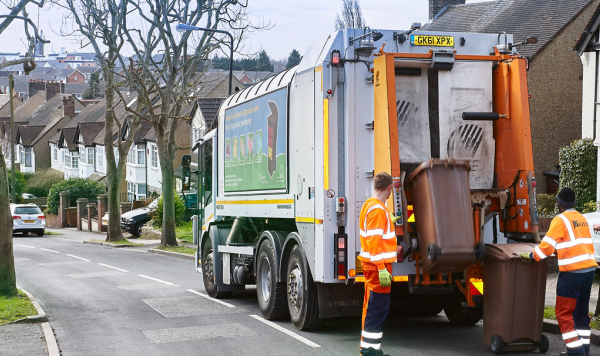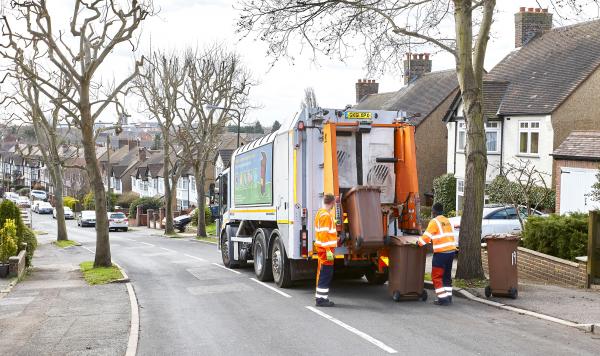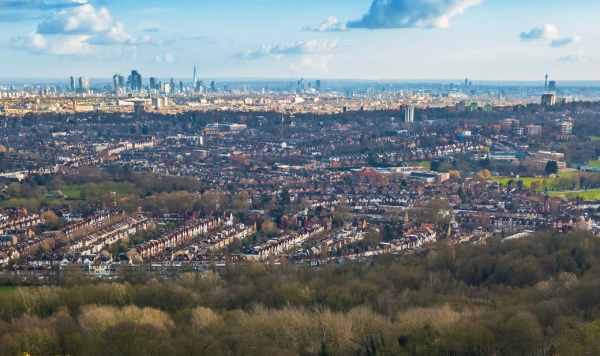Request
Deputation from Caroline Royds, Islington Climate centre.
Can the North London Waste Authority explain how they intend to spend the £14.5m EPR money they will receive in 2025/6 to reduce waste and increase recycling?
Response
Dear Ms Royds,
Thank you for taking the time to raise your deputation at the North London Waste Authority (NLWA) meeting on Thursday 13 February 2025.
I appreciate you attending the meeting in person and explaining your views in relation to the crucial importance of waste prevention and the need for appropriate funding. We are also grateful for your input into north London’s forthcoming Joint Waste Strategy. You noted that it appears that funds for NLWA’s waste prevention programme have reduced for 2025/26 I would like to reassure you that waste prevention, behaviour change, education and communications are a top priority for the Authority, and that the scope and range of activities has increased over the past few years.
The current waste prevention plan is more ambitious than previous plans, with more targeted and effective activities. For communications, this means spending less on expensive outdoor advertising and print, and investing in more digital and social media campaigns which reach more residents in a more cost-effective way. Where we do use traditional advertising, we follow it up with digital and in-person activities to maximise the impact of our expenditure. A good example is the Bring It campaign which tackles single use plastics by getting businesses to encourage customers to use reusable bags, cups and containers. This has now been rolled out to seven boroughs, reaching over half a million people, with 335 businesses taking part.
To get the best value, we now deliver most of our waste prevention work in house, rather than spending on external contractors. To increase the capacity to deliver work in house, we have increased spend on staffing by about £250,000 since 2022/23, whilst spending far less on contractors. This is particularly making an impact to our education work, which previously involved paying a contractor to deliver a small number of lessons in schools. NLWA now has an experienced education officer to develop and deliver lessons in schools and at EcoPark House. By refocusing our internal resources, we will aim to offer at least 100 education and engagement sessions per year.
By spending less on traditional advertising and contractors, we have been able to increase our spend in the areas that can reach residents in a more meaningful way. That's why our community fund has increased over time from just £40,000 in 2017/18 to £250,000. This year that means supporting more than 20 local groups to deliver waste prevention activities in our communities. But because the projects are delivered over financial years, the profile of spend varies, which is one of the reasons that the budget for 2025/26 appears lower than 2024/25.
We talk about the waste hierarchy, but there is also a hierarchy of influence with the government at the top, then manufacturers, retailers, individuals, councils and disposal authorities. Officers have worked with partners to campaign more loudly and build relationships to influence the government. Again, this is an area of work in which we are far more active, but the investment required is staff time, so it does not appear in the waste prevention budget.
I hope this reassures you that, even as local authority budgets are under increasing strain, we continue to increase our activity and investment in our waste prevention activities. This will continue, as we develop delivery plans to help us achieve the ambitious targets set in the Joint Waste Strategy.
You noted that the recycling initiative budget is £211,000 compared to £206,000 last year. This is a scheme that pays credits to registered charities for removing items from the waste stream for reuse and recycling. The credits are related to tonnage, so the amount varies year by year depending on the tonnages declared by the charities. As it is a demand-driven area of cost, the budget forecast is an estimate of what will be spent, it is not a maximum.
You asked how North London Waste Authority intends to spend the £14.5m Extended Producer Responsibility (EPR) payments to reduce waste and increase recycling.
With council budgets having suffered significant cuts to funding over the last 15 years, we will use some of the EPR funding to reduce the levy for the boroughs for 2025/26. Taxpayers have been footing the bill to dispose of packaging generated by producers for years, so using £6.27m to ease the immediate burden on councils is the right thing to do.
The remaining £8.23m will be transferred to NLWA’s reserve fund, which can be drawn from to invest in new and existing initiatives. NLWA is unique as we manage a 50-year-old waste disposal facility which needs to be kept operational until the new facility is complete. The old plant cannot meet current demand, which leads to additional costs. Having the reserve helps us deal with this medium-term uncertainty. The reserve also provides scope for considering circular economy initiatives which, if they lead to less waste needing to be disposed of, further reduce costs for boroughs.
The main aim of the draft Joint Waste Strategy is to promote waste prevention. It includes ambitious targets like reducing avoidable food waste by 50%, reducing recyclable material in residual waste by 50% and doubling the proportion of material reused at our Reuse and Recycling Centres.
Some of the initiatives proposed in the draft strategy are:
- Developing the reuse offer at our reuse and recycling sites
- Bringing repair back to the high street
- Promoting repair skills, sharing and hiring opportunities
- Diverting materials that can be reused or transformed into new products locally
- Processing all of our recycling in the UK
- Improving the range of materials accepted for recycling
Current work includes a repair voucher scheme and a review to our approach to community grant giving and subsidies for reusable products.
To ensure the best use of public money, the Members Recycling Working Group steers NLWA’s waste prevention initiatives and any significant new projects will go to Authority Meetings for approval.
Thank you again for your contribution and I hope that we will work closely with you and your colleagues at Islington Climate Centre and the Islington Environmental Alliance in the coming years on developing initiatives that will make a tangible difference in preserving precious resources and preventing waste from being created in the first place.
Yours sincerely,
Cllr Clyde Loakes Chair, North London Waste Authority




